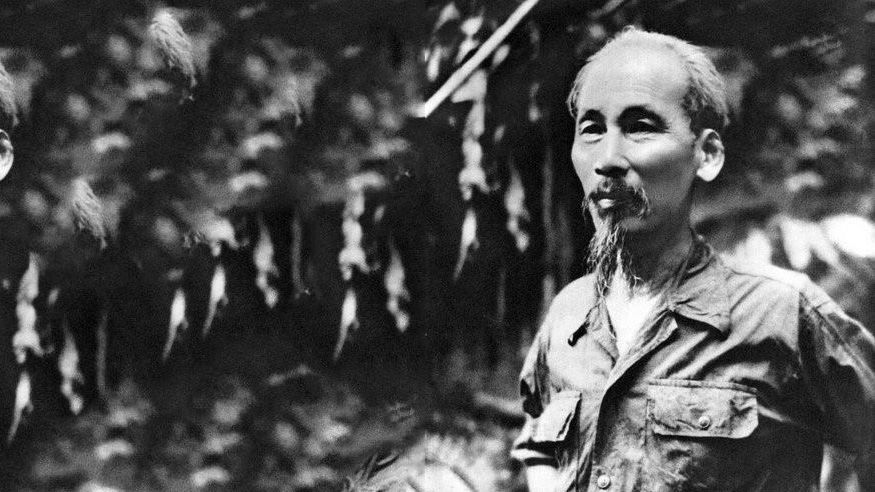Ho Chi Minh and his thought on
“TAKING PEOPLE AS THE ROOT”
Inheriting and developing the traditional Vietnamese value of
“respecting the people,” the Marxism-Leninism’s view on the role of the masses in revolutionary history, President Ho Chi Minh creatively developed and elevated the ideology of "taking people as the root".

Nothing is more precious than the people

Ho Chi Minh's people-centred approach contains scientific, revolutionary, humanistic values and is vividly seen through his life devoted to the country and the people.
In both ideology and practical action, Ho Chi Minh always emphasised the role and power of the people, firmly believing in their capability and strength. He affirmed that nothing is more precious than the people, and nothing is stronger than the unity of the people.
(Ho Chi Minh: Complete Works, Su That (Truth) National Political Publishing House, Hanoi, 2011, Vol. 5, p. 335)
Ho Chi Minh stressed that the country must take people as root, and people must be placed at the centre of the country’s policies because the strength of the masses is immense. “With the people’s strength, even the greatest and most difficult tasks can be accomplished. Without it, nothing can be done. The people can solve many problems simply, quickly, and thoroughly, which even the talented and large organisations cannot figure out."
(Ho Chi Minh: Complete Works, Vol. 10, p. 453)
He summarises that: “The country takes the people as the root… Only when the root is strong will the tree be stable; build the victory palace on the foundation of the people.”
(Ho Chi Minh: Complete Works, Vol. 5, pp. 501-502)
OUR COUNTRY IS A DEMOCRATIC COUNTRY.
All benefits belong to the people.
All powers belong to the people.
The national renewal and construction are the responsibility of the people.
The cause of national resistance and construction is the people’s work.
The authorities, from local to the central levels, are elected by the people.
Mass organisations, from the central to the grassroots levels, are organised by the people.
In short, power and strength lie with the people.”
(Ho Chi Minh: Complete Works, Vol. 6, p. 232)
He appreciates the folk saying: “Even things ten times easy can’t be solved without the people, a hundred times hard things can be managed by the people.”
(Ho Chi Minh: Complete Works, Vol. 15, p. 280)
Emphasising the role of the people towards the State, President Ho Chi Minh affirmed: “Our regime is a democratic regime, that is, the people are the masters, and the government is the faithful servant of the people.”
(Ho Chi Minh: Complete Works, Vol. 9, p. 382)
He repeatedly emphasised the viewpoint of “the people are the owners and the people exercise ownership” in many of his articles and speeches. He stressed that in a democratic regime, the people hold all power. Ho Chi Minh often mentioned the role of every citizen as “the owners of the country” across all sectors and classes: workers, peasants, intellectuals, youth, women, ethnic groups, and even children. When the people are masters, all cadres and party members are servants of the people. He required cadres and party members to clearly understand their role: “One joined the Party to be a servant of the people… to serve the people. Leadership is serving the people and must do it well.”
(Ho Chi Minh: Complete Works, Vol. 15, p. 292)
For revolutionary cadres and journalists, he stresses that serving the people is a glorious honour. “Party cadres and government officials, even I as the highest cadre, am a servant of the people, must wholeheartedly serve the people.”
(Ho Chi Minh: Complete Works, Vol. 11, p. 113)
Since “the country takes the people as the root,” Ho Chi Minh emphasised that all cadres and party members must be close to, respect, learn from, be honest with, and care for the people. The Party, to lead effectively, must be close to the people, listen and understand their hearts to adopt appropriate policies. Ho Chi Minh asked cadres to avoid bureaucracy and commandism by following “the people’s guideline” and thoroughly implementing six principles:
Place the people's interests above all.
Ho Chi Minh: Complete Works, Vol. 7, p. 177
Maintain a close bond with the people.
Discuss everything with the people and explain everything clearly to them.
Frankly self-criticise before the people and welcome their criticism.
Be ready to learn from people.
Set an example in thrift, integrity, and uprightness for the people to follow.
In Ho Chi Minh’s thought, the people’s interests are the revolutionary goal and the Party’s ideal:
“Our Party’s mission is wholeheartedly to serve the Fatherland and the people. Apart from serving the interests of the Fatherland and the people, our Party has no other interests.”
(Ho Chi Minh: Complete Works, Vol. 9, p. 31)
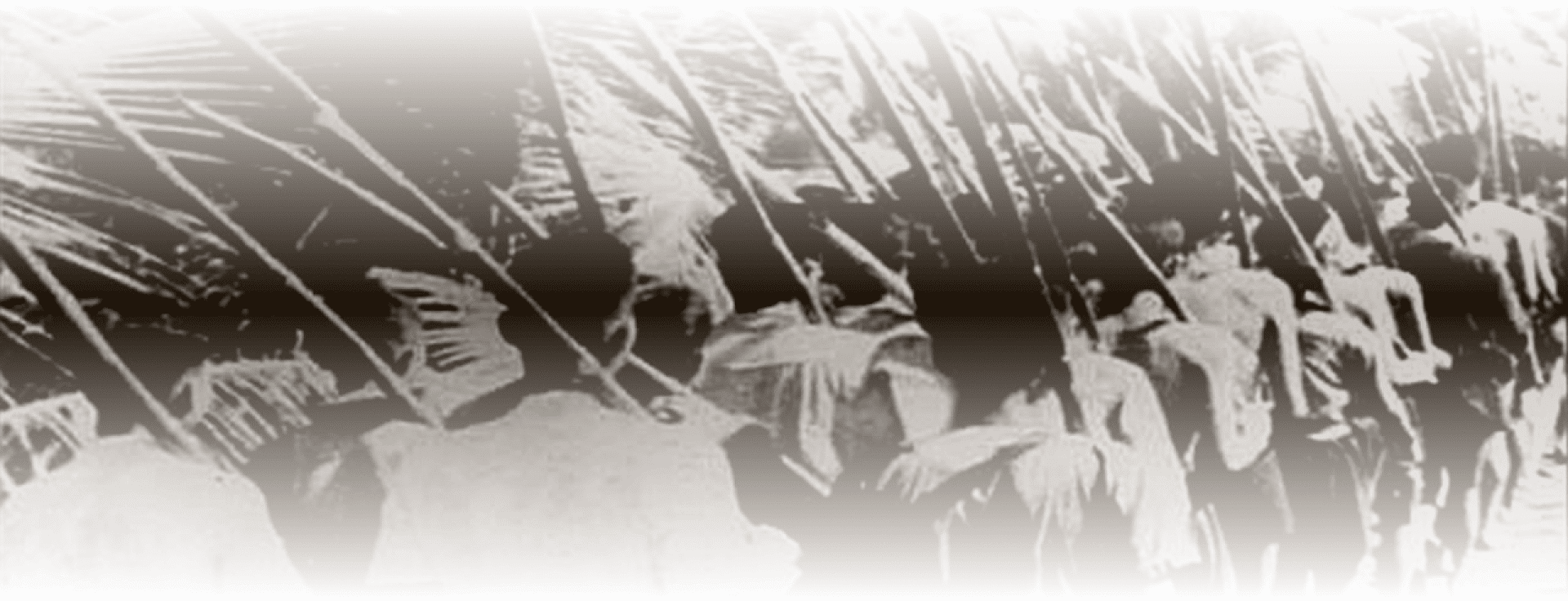
President Ho Chi Minh particularly emphasised the importance of relying on the people to build the Party and train cadres and Party members. In October 1947, in his work “Improving the Work Style”, President Ho Chi Minh wrote: “Trust in the masses... Rely on the opinions of the masses to correct our cadres and organisation.”
(Ho Chi Minh: Complete Works. National Political Publishing House, Ha Noi, 2011, Volume 5, pp. 337-338).
During the period when the entire country concentrated its human and material resources on the resistance war, President Ho Chi Minh focused on mobilising the people to build and improve the apparatus and cadre force of the Party and Government. He wrote: “... We must welcome and encourage the masses to honestly criticise cadres and Party members.”
(Ho Chi Minh: Complete Works. National Political Publishing House, Ha Noi, 2011, Volume 15, p. 547).
He advocated: “Trust in the masses. Bring all issues to the masses for discussion and solution” to “Rely on the opinions of the masses to correct our cadres and organisation.”
(Ho Chi Minh: Complete Works. National Political Publishing House, Ha Noi, 2011, Volume 5, p. 338).
He required Party organisations and members to personally reach out to the people and carefully listen to and absorb people’s opinions. Based on this, they should first rectify themselves and then contribute to rectifying and building the Party. All cadres and Party members “must maintain close contact with the masses. They must not distance themselves from the masses. Distance from the masses leads to isolation. Isolation will certainly lead to failure.”
(Ho Chi Minh: Complete Works. National Political Publishing House, Ha Noi, 2011, Volume 5, p. 278).
When the people’s strength is mobilised, organised, and united under the leadership of the Party, it becomes invincible. President Ho Chi Minh’s guidance on relying on the people to build the Party politically and organisationally from 1947 until now remains relevant:
“We must resolutely eliminate bureaucracy, narrow-mindedness, and commandism. We must resolutely implement the following principles:
1. Everything must be learned from and discussed with the masses, explained to the masses.
2. Trust in the masses. Bring all issues to the masses for discussion and solution. If we have shortcomings, honestly acknowledge them before the masses. If the masses find a resolution unsuitable, allow them to propose corrections. Rely on the opinions of the masses to correct our cadres and organisation.”
(Ho Chi Minh: Complete Works. National Political Publishing House, Ha Noi, 2011, volume 5, pp. 337-338).
Closely connecting with the people, fighting for the interests of the people is the purpose of activity, the reason for existence, and the meaning of life for the Party. The Party becomes the representative of the interests of the class and the people. This is the starting point and also the content and goal of the Party’s struggle. Relying on the people to build the Party, educate and train cadres and Party members is also an important, core emphasis of Ho Chi Minh’s thought on “taking the people as the root”.
WE MUST ERADICATE BUREAUCRACY AND COMMANDISM (*)
Everyone knows that bureaucracy and commandism are dangerous. But in practical work, such as the recent temporary rice borrowing, many of our cadres still suffer from this illness. They talk about democracy, but they work in a “mandarin” style. They say they “serve the masses”, but they act contrary to the interests of the masses, contrary to the guidelines and policies of the Party and Government.
Where does bureaucracy and commandism come from?
Distancing from the people: As a result, not understanding the mentality and aspirations of the people.
Disdain for the people: Considering them ignorant and backward, expecting them to follow orders without question, assuming they cannot understand high politics and theory like oneself.
Fear of the people: When there are mistakes and shortcomings, fearing criticism from the people, fearing loss of face, fearing having to make corrections.
Not trusting the people: They forget that without the strength of the people, even small and easy tasks cannot be accomplished; with the strength of the people, even difficult and major tasks can be accomplished.
Not understanding the people: They forget that people need to see practical benefits (immediate and long-term benefits, individual and common benefits, partial and overall benefits). With the people, one cannot use empty theory or empty politics.
Not loving the people: As a result, they only know how to demand from the people without practically helping the people. For example: They require the people to contribute, but do not know how to help the people increase production, improve their lives, to nurture the people’s material and human resources.
In some places, bureaucracy and commandism are so severe that cadres deceive and threaten the people!
Bureaucracy and commandism lead to only one result: failure. Therefore, we must quickly cure this dangerous disease. The cure for this disease consists of one principle:
Follow the people’s line, and six elements:
Placing the interests of the people as the top priority in decision-making.
Maintaining close ties with the people.
Consulting the people on all matters, ensuring they understand clearly.
When making mistakes, honestly self-criticising in front of the people and welcoming their criticism.
Being open to learning from the people.
Setting a personal example of diligence, thrift, integrity, and impartiality for the people to follow.
All Party and Government cadres must be ready to strive for self-improvement and serve the people wholeheartedly. I hoped that comrades would diligently apply this “prescription” (bitter medicine cures disease) to cure the disease of bureaucracy and commandism, thereby becoming good cadres and contributing to a successful agricultural tax collection campaign.
C.B.
Nhan Dan Newspaper, issue No. 23, September 2, 1951
(*) Ho Chi Minh: Complete Works, National Political Publishing House, Ha Noi, 2011, Volume 7, pp. 176–177
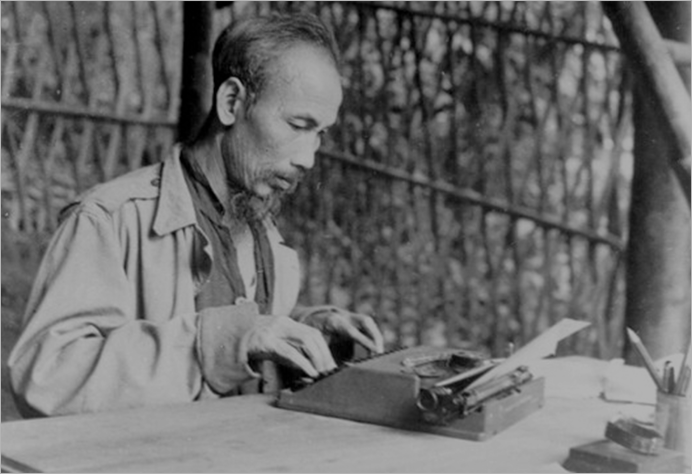
Applying Ho Chi Minh’s ideology on
“TAKING PEOPLE AS THE ROOT”

Throughout the revolutionary guidance process, the Communist Party of Viet Nam and President Ho Chi Minh always attached importance to and successfully applied the ideology of “Taking the people as the root,” to ensure that the people are truly at the centre and are the principal agents of the cause of renovation, national construction and defence. The Communist Party of Viet Nam affirms that revolution is the cause of the masses, by the people and for the people. All the glorious victories of the Party are the victories of the people’s desire for unity and peace, and also the triumphs of strength, national solidarity and the will of the people.
During the renewal period, our Party and State have put forward many sound and people-centric guidelines and policies to promote the role and mobilisation of the people, strengthen the great national unity bloc, and generate comprehensive strength. These have significantly contributed to the historic achievements of the renewal process initiated and led by our Party, laying a crucial foundation for continued renewal and strong development in the years to come.
In the documents of the 6th National Party Congress, the Party affirmed that the first and most important lesson drawn from revolutionary practice is that “in all its activities, the Party must thoroughly grasp the idea of ‘Taking the people as the root,’ building and promoting the working people’s right to mastery. Our Party has no other purpose than to fight for the happiness of the people. The masses are the makers of history… All of the Party’s policies must originate from the interests, aspirations and capacities of the working people, and must inspire the agreement and active response of the masses. Bureaucracy, commandism, and detachment from the masses, going against their interests, will weaken the strength of the Party.”
(Communist Party of Viet Nam: Complete Party Documents, Truth National Political Publishing House, Ha Noi, 2016, Volume 47, pp. 362–363)
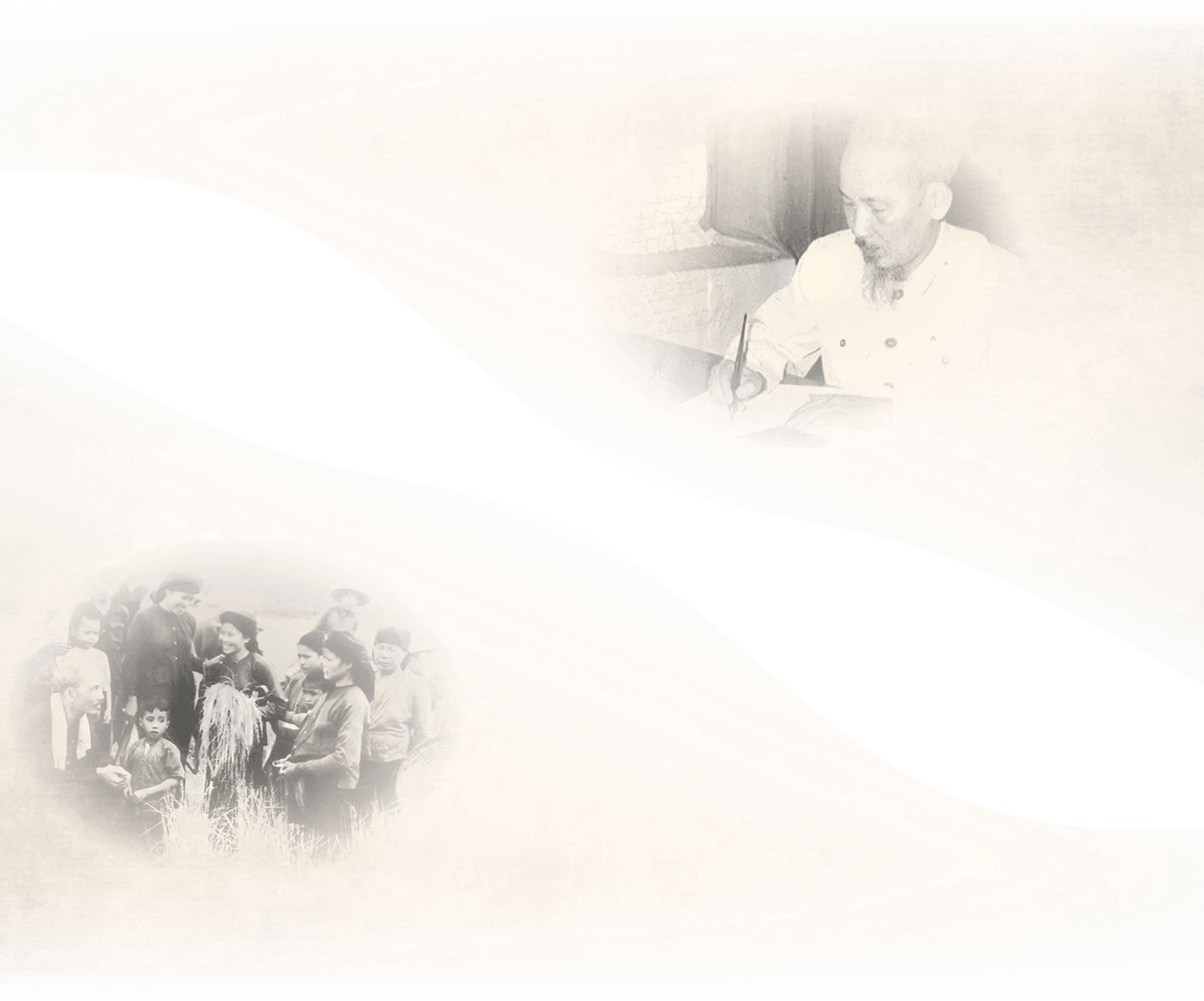
The Platform on National Construction during the period of Transition to Socialism (1991) stressed: “The revolutionary cause belongs to the people, is carried out by the people and serves the people. It is the people who create historic victories. All Party activities must stem from the genuine interests and aspirations of the people. The Party’s strength lies in its close connection with the people. Bureaucracy, commandism, and estrangement from the people will lead to unforeseeable losses for the fate of the country.”
(Communist Party of Viet Nam: Platform on National Construction during the period of Transition to Socialism, National Political Publishing House, Ha Noi, 1991, p.5)
The documents of the 9th National Party Congress affirmed that one of the most valuable lessons from 15 years of renewal (1986–2000) is that “renewal must rely on the people, for the benefit of the people, in line with realities, and always be innovative... Renewal is the cause of the people, by the people and for the people. For the renewal process to succeed, it is essential to mobilise the participation of all social strata and economic sectors.”
(Communist Party of Viet Nam: Documents of the 9th National Party Congress, National Political Publishing House, Ha Noi, 2001, pp. 81–82)
Through various Party Congresses, the principle of “Taking the people as the root” has always been concretised into directions, tasks, and mechanisms to realise the motto “the people know, the people discuss, the people do, and the people monitor,” ensuring the effective implementation of democratic mechanisms of the people and promoting the role of the masses.
The Platform on National Construction during the period of Transition to Socialism (supplemented and developed in 2011) affirmed: “Socialist democracy is the essence of our regime, both a goal and a driving force for national development. Building and gradually perfecting socialist democracy means ensuring that democracy is truly exercised in all areas and at all levels. Democracy must go hand in hand with discipline and order, institutionalised in laws, and guaranteed by laws.”
(Communist Party of Viet Nam: Documents of the 11th National Party Congress, Truth National Political Publishing House, Ha Noi, 2011, pp. 84–85)
These are summarised, highly general views on democracy, affirming the nature of the socialist social regime that our people build is “democracy” and "people's mastery".
Other important documents of the Party, the State, the Viet Nam Fatherland Front, and political-social organisations continue to affirm and concretise this viewpoint.
The 2013 Constitution has many new points, including democracy, human rights, and people's mastery. The system of legal documents on democracy in the activities of state power agencies has also been institutionalised and concretised. People's mastery in deciding major and important issues of the country has been given attention, linking citizens' rights with obligations and responsibilities to society.
The 13th National Party Congress has added content and mottos to promote socialist democracy, ensuring people's mastery. That is, adding "people supervise, people benefit" to the motto: "people know, people discuss, people inspect, people supervise, people benefit"; more clearly defining the role of "the Party leads, the State manages, the Fatherland Front and socio-political organisations act as the core" for people to be masters; affirming the Party's guidelines and policies, the State's policies and laws as the political and legal foundation for the people to exercise their mastery and "the people's central role and position in the country's development strategy, in the entire process of building and defending the Fatherland".
(Communist Party of Viet Nam: Documents of the 13th National Congress of Delegates. National Political Publishing House Truth, Hanoi, 2021, volume 1, p.173).
The viewpoint that "taking people as the root", the subject of the renovation process, is increasingly understood and implemented more deeply and fully; the close relationship between the Party and the people is consolidated and strengthened.
The viewpoint that "taking people as the root", the subject of the renovation process, is increasingly understood and implemented more deeply and fully; the close relationship between the Party and the people is consolidated and strengthened. The Documents of the 13th National Party Congress determined: Further tighten the close relationship between the Party and the people, rely on the people to build the Party, "promote the role and participation of the people in formulating, promulgating, and organising the implementation of the Party's guidelines and policies, the State's policies and laws based on ensuring the harmony of interests between the State, enterprises and the people, between regions and localities; pay attention to vulnerable groups in society. Continue to perfect, concretise, and implement the mechanism of "Party leadership, State management, people as masters" and the motto "People know, people discuss, people do, people inspect, people supervise, people benefit".
(Communist Party of Vietnam: Documents of the 13th National Party Congress, National Political Publishing House, Truth, Hanoi, 2021, volume 1, pp. 191, 192).
Throughout the process of leading the revolution, Uncle Ho and our Party have always been deeply aware of the great significance of the People, the extremely important meaning of mass mobilisation work, and have constantly taken care of building and consolidating close ties with the People. Thanks to that, despite its small number, our Party still has enough strength to lead the revolution to overcome all difficulties, defeat all enemies, even the most dangerous and brutal enemies. Doing well mass mobilisation work and closely connecting with the People is a fine tradition and a source of invincible strength for our Party.
Currently, the issue of decisive significance to strengthening the relationship between the Party and the People is that the Party must take full and deep care of the lives and interests of the People; truly respect and promote the people's right to mastery; consolidate and build a truly clean Party organisation, overcome negative phenomena among cadres and Party members, making the Party truly worthy of being the leader and loyal servant of the People.
(Nguyen Phu Trong: Firmly believing in the Party's leadership, overcoming any difficulty. Publishing House National Politics Truth, Hanoi, 2018, pp. 333, 335).

Learning and following Uncle Ho, turning to the people, caring for the people

The life and career of President Ho Chi Minh, his ideology, morality and style are invaluable spiritual assets of our Party and people. The 12th plenary meeting of the 9th Communist Party of Viet Nam (CPV) Central Committee issued Conclusion No. 39-KL/TW dated August 30, 2005 on implementing pilot instructions for the campaign "Studying and following the moral example of Ho Chi Minh" among cadres, party members and people, drawing experience for the Politburo to issue a directive to conduct a major campaign throughout the Party on this topic immediately after the 10th National Party Congress".
In early 2006, the Party Central Committee Commission for Ideology and Culture organised pilot campaigns in the provinces of Hai Duong, Khanh Hoa, Binh Duong and the Party Committees, namely the Party Committee of the Party Central Committee Commission for Mass Mobilization, and Central Economic Bloc Party Committee and the Ministry of Education and Training Party Committee.
Based on the results of the pilot work, on November 7, 2006, the 10th Politburo issued Directive 06-CT/TW on organising the Campaign “Studying and following the moral example of Ho Chi Minh”.
The campaign’s purpose is “To make the entire Party and the entire people deeply aware of the basic contents and great values of Ho Chi Minh’s moral ideology and example. To create a strong change in the awareness of cultivating, training and following the moral example of Ho Chi Minh widely throughout society, especially among cadres, party members, civil servants, union members, youth and students... to improve revolutionary ethics, diligence, thrift, integrity, impartiality; to push back the degradation of political ideology, morality, lifestyle and social evils, contributing to the successful implementation of the Resolution of the 10th National Party Congress”.
In the Platform on National Construction in the Transitional Period to Socialism (supplemented and developed in 2011), Ho Chi Minh’s thought is affirmed as “a comprehensive and profound system of viewpoints on fundamental issues of the Vietnamese revolution, the result of the creative application and development of Marxism-Leninism to the specific conditions of our country, inheriting and developing the fine traditional values of the nation, absorbing the cultural quintessence of humanity; an extremely great and valuable spiritual asset of our Party and people, forever illuminating the path for the revolutionary cause of our people to win victory”.
The Resolution of the 11th National Party Congress required that studying and following Ho Chi Minh's moral example has become an important, regular and long-term task of cadres, Party members, party cells, party organisations and people of all walks of life. On May 14, 2011, the Politburo (11th tenure) issued Directive 03-CT/TW on “Continuing to promote studying and following Ho Chi Minh’s moral example”. The implementation of Directive 03-CT/TW has significantly contributed to the successful implementation of the Resolution of the 11th National Party Congress and Resolution of the 4th Plenum of the 11th Party Central Committee on “Some urgent issues on Party building at present”.
For the first time in the Documents of the 12th National Party Congress, our Party affirmed to build a clean and strong Party not only in terms of politics, ideology, and organisation, but also emphasised the Party building in terms of morality. This is also the first time “Ho Chi Minh’s style” has been officially emphasised in the Documents of the National Party Congress. On May 15, 2016, the Politburo (12th tenure) issued Directive 05-CT/TW on “Promoting studying and following Ho Chi Minh’s ideology, morality, and style”. The main new point is to focus on implementing Directive 05-CT/TW with Party building work, implementing Resolution 04-NQ/TW of the 12th tenure on “Strengthening Party building and rectification; preventing and repelling the degradation of political ideology, morality, lifestyle, and “self-evolution” and “self-transformation” manifestations within the Party”.
The Resolution of the 13th National Party Congress identifies the task of “promoting revolutionary ethics education, regularly, extensively and effectively implementing the study and following of Ho Chi Minh’s ideology, morality and lifestyle in conjunction with the implementation of political tasks”.
The Resolution of the 13th National Party Congress identifies the task of “promoting revolutionary ethics education, regularly, extensively and effectively implementing the study and following of Ho Chi Minh’s ideology, morality and lifestyle in conjunction with the implementation of political tasks”. On May 18, 2021, the Politburo (13th tenure) issued Conclusion No. 01-KL/TW on continuing to implement Directive No. 05-CT/TW of the Politburo “On promoting the study and following of Ho Chi Minh’s ideology, morality and lifestyle”. Conclusion 01-KL/TW emphasises the requirement: Study and follow Uncle Ho so that our Party and each Party member are worthy of the leading role and mission of the Vietnamese revolution and the people’s trust. Build a closer relationship between the Party and the people, effectively implement the motto "People know, people discuss, people do, people inspect, people supervise, people benefit", "respect the people, be close to the people, trust the people, understand the people, learn from the people, rely on the people and be responsible to the people", "be worthy of being a leader, a truly loyal servant of the people". Closely combine studying and following Ho Chi Minh's ideology, morality and style in the political task implementation of each locality, unit and Party building work; effectively resolve breakthroughs and key, urgent issues in practice.
From Directive 06-CT/TW, Directive 03-CT/TW to Directive 05-CT/TW and Conclusion 01-KL/TW, studying and following Uncle Ho's example has been concretised into specific tasks and programmes by Party committees, authorities, units and organisations, promoting its widespread influence in all aspects of social life, increasingly becoming a reality, gradually becoming a regular practice, routine, and lifestyle of cadres, Party members and people.
According to the results of the social opinion survey conducted in March 2021 by the Party Central Committee’s Commission for Communication and Education, 71% of respondents assessed that studying and following Uncle Ho's example has restored and strengthened the people's trust and attachment to the Party, the State and the socialist regime.
Studying and following Uncle Ho’s example, many practical and effective emulation movements have contributed to socio-economic development and caring for people's lives such as "Good employees, creative employees"; “Farmers compete to build new-style rural areas”; “Women actively study, work creatively, build happy families”; “Volunteer to develop socio-economy and protect the Fatherland”; “Competition to win”; “For the security of the Fatherland”.
From these movements, there are many outstanding collectives and individuals, typical advanced and exemplary models; many initiatives and experiences of collectives and individuals have been applied in labour and production practices, arousing feelings, motivation, patriotism, national consciousness and the desire to contribute and serve the country of all social classes.
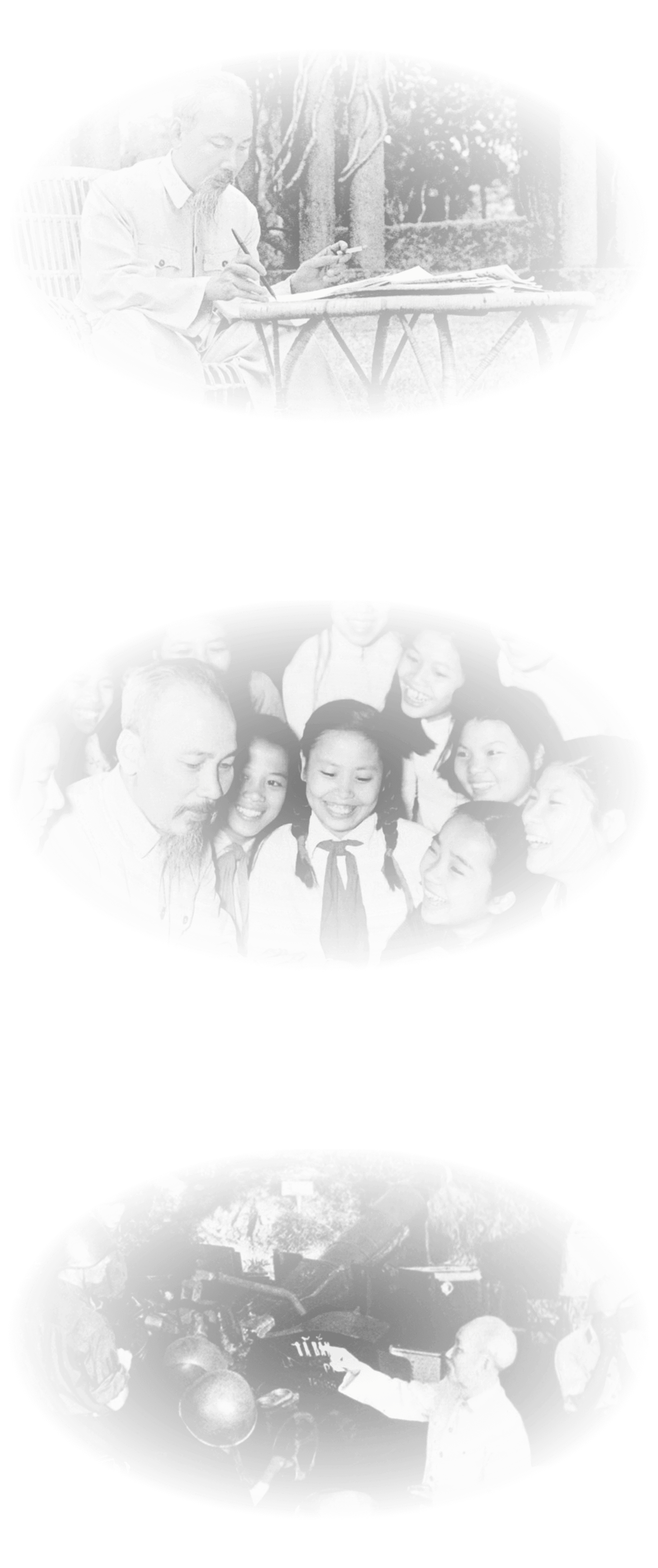
President Ho Chi Minh’s ideology, morality and style are invaluable spiritual assets of our Party and our people, illuminating the revolutionary cause, guiding each step forward and the victory of the Vietnamese revolution. Studying and following President Ho Chi Minh’s ideology, morality and style is a very necessary task, an extremely important, regular and indispensable task for our entire Party and people, first of all Party organisations, State agencies, cadres and Party members in cultivating, training, dedicating, serving the country and serving the people.
Party General Secretary Nguyen Phu Trong
